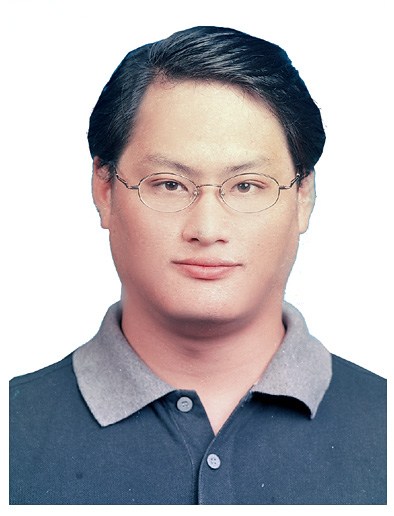Taiwanese NGO worker Lee Ming-che disappeared ten days ago while traveling to mainland China via Macau. His disappearance comes amid tightening control over civil society and mounting concerns over treatment of foreigners, dual citizens, and others in China, and extraditions of Taiwanese criminal suspects from third parties to the mainland. Taiwan’s ruling Democratic Progressive Party, Lee’s former employer, said last week that China’s refusal to disclose information on his case had “caused the family anxiety and panic,” raising doubts about mainland authorities’ willingness to “effectively protect human rights and not increase the risk of Taiwanese people traveling to China.” According to reports on Tuesday, Taiwan’s Mainland Affairs Council had shared “indirectly” obtained confirmation of Lee’s detention with his wife, but there had still been no official word beyond an acknowledgement that he had crossed the border. On Wednesday, a spokesperson for the mainland State Council’s Taiwan Affairs Office confirmed his “understanding” that Lee had been detained on suspicion of endangering national security.
As the Associated Press’ Ralph Jennings reports, Lee’s detention may have resulted in part from political discussions he had held on Tencent’s WeChat messaging service:
Lee Ming-che, 42, disappeared after clearing immigration on March 19 in the semi-autonomous Chinese territory of Macau and never showed up for a planned meeting later that day with a friend across the border in the Chinese city of Zhuhai, according to Chiu Yi-ling, secretary general of the Taiwan Association for Human Rights, where Lee had been a volunteer.
Cheng Hsiu-chuan, president of Taipei’s Wenshan Community College where Lee has worked for the past year as a program director, said it’s likely that Lee attracted the attention of Chinese security last year after using WeChat to “teach” an unknown number of people about China-Taiwan relations under the government of Taiwan President Tsai Ing-wen.
“For China, the material he was teaching would be seen as sensitive,” Cheng said. WeChat has millions of active users and is hugely popular as a means of communication in China.
[… I]n mid-2016 Chinese authorities shut down Lee’s WeChat account and confiscated a box of books published in Taiwan on political and cultural issues, Cheng said. [Source]
The New York Times’ Chris Horton also reported on Lee’s activities last Saturday:
Ms. Cheng, the director of the community college, said on Saturday that Mr. Lee had not been directly involved with civil society work in mainland China.
But she said his wife, Lee Ching-yu, had told her that he had weekly chats on Chinese social media about “some of Taiwan’s experiences with democracy and transitional justice” with mainland friends who wanted China to move in a direction similar to Taiwan’s.
[…] Mr. Lee met with some of those friends during visits to the mainland about once a year, Ms. Cheng said.
“It’s not any kind of formal activity; it’s just catching up with friends,” she said. She added that he also delivered donated Taiwanese books to the family of imprisoned rights lawyers in China and had planned to seek medical advice for a relative during this month’s trip. [Source]
Distribution of political books from Taiwan and Hong Kong was at the center of two recent convictions for “illegal business operations” in Guangxi.
Concerns about official monitoring of WeChat date back to the early days of the service. In 2012, activist Hu Jia reported that Domestic Security Department officers had been able to quote messages back to him verbatim. (Around the same time, state broadcaster CCTV voiced different privacy concerns about criminal exploitation of the service and its location features.)
In 2013, Tibetan poet Woeser wrote that “in the propaganda film made by CCTV about the self-immolations in Tibet, most of the Tibetans that were arrested and sentenced were caught by the local authorities and severely punished because they had sent out messages about self-immolations through QQ or WeChat.” Between this and other kinds of remote surveillance and physical inspections, she added, “the mobile phone has become the embodiment of fear” in Tibet.
Also in 2013, CDT translated an anonymous journalist’s account of being contacted by police after discussing a planned protest in a WeChat group. The Wall Street Journal’s Li Yuan reported a similar incident earlier this month in an article on the lack of privacy that left many Chinese unmoved by revelations of American surveillance. She quoted a friend who described the feeling as like “running naked”:
By “running naked,” he said he means: “At any minute, all my personal information is being collected and leaked. All my online trails are saved and used without my permission. All of this is driven by strong business and political interests. Running naked is a condition in which it’s impossible to be protected.”
That sentiment captures how many Chinese feel about the state of their online privacy: unprotected, with little to be done about it.
[…] The “Big Brother” nature of China’s authoritarian government is at the root of the predicament.
Few Chinese believe anything can be hidden from the government. Some of my closest friends—businesspeople, professionals and academics—say they assume that the government knows everything about them. It is just a matter of whether the government is paying attention, they say.
Wang Ying, a retired businesswoman and a vocal critic of the government’s lack of political reform and tolerance, said in an interview in 2014 that after some foreign journalists contacted her on WeChat a few years ago to arrange interviews, her secret police minder soon showed up at her door, asking her to decline the requests. She said “no.” [Source]
Li goes on to discuss the widespread black market sale of personal data, which was the subject of a Southern Metropolis Daily report in December. Meanwhile, the rollback of FCC restrictions on the sale of personal data by internet service providers has brought renewed urgency to such privacy concerns in the United States.








